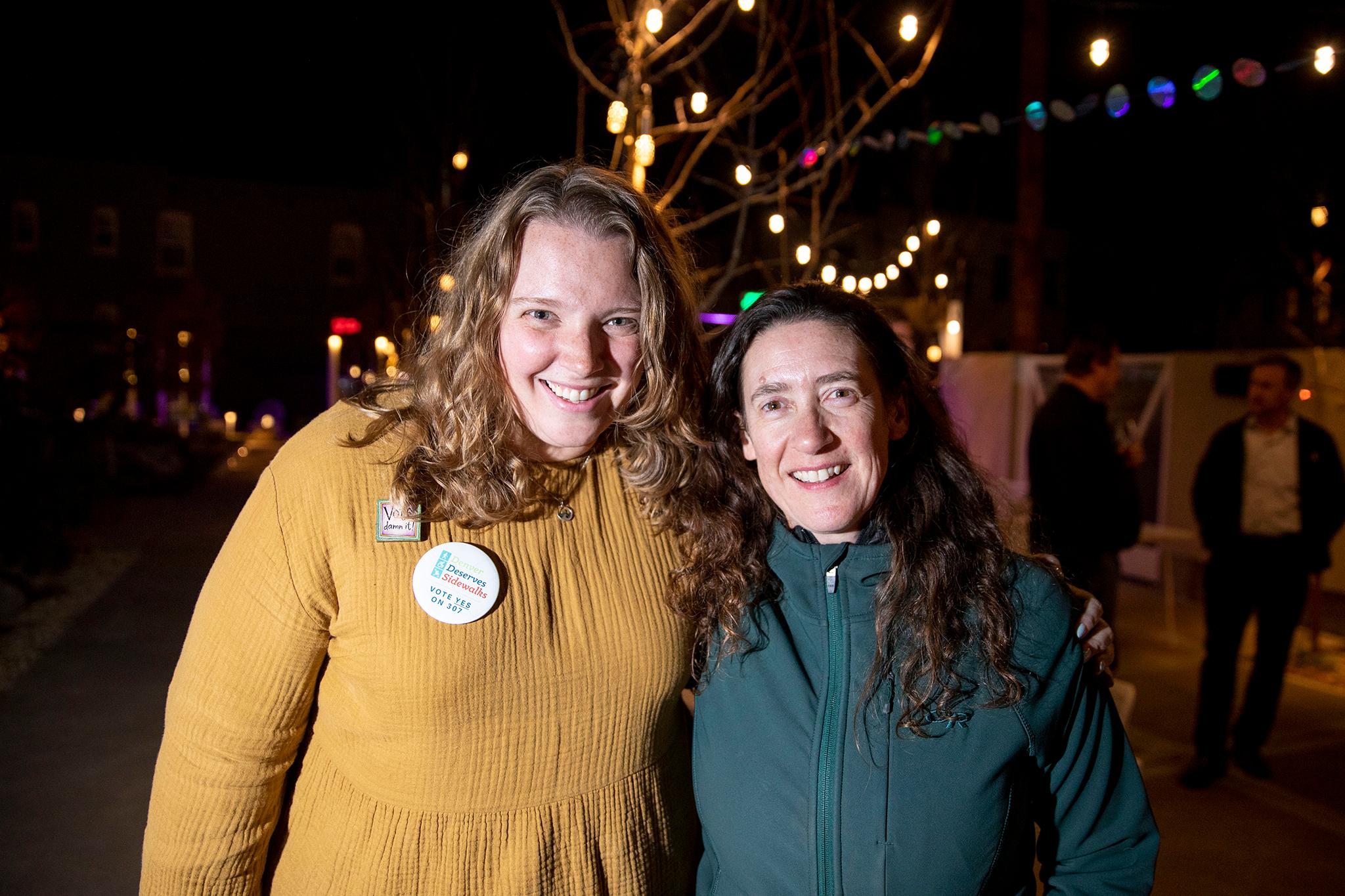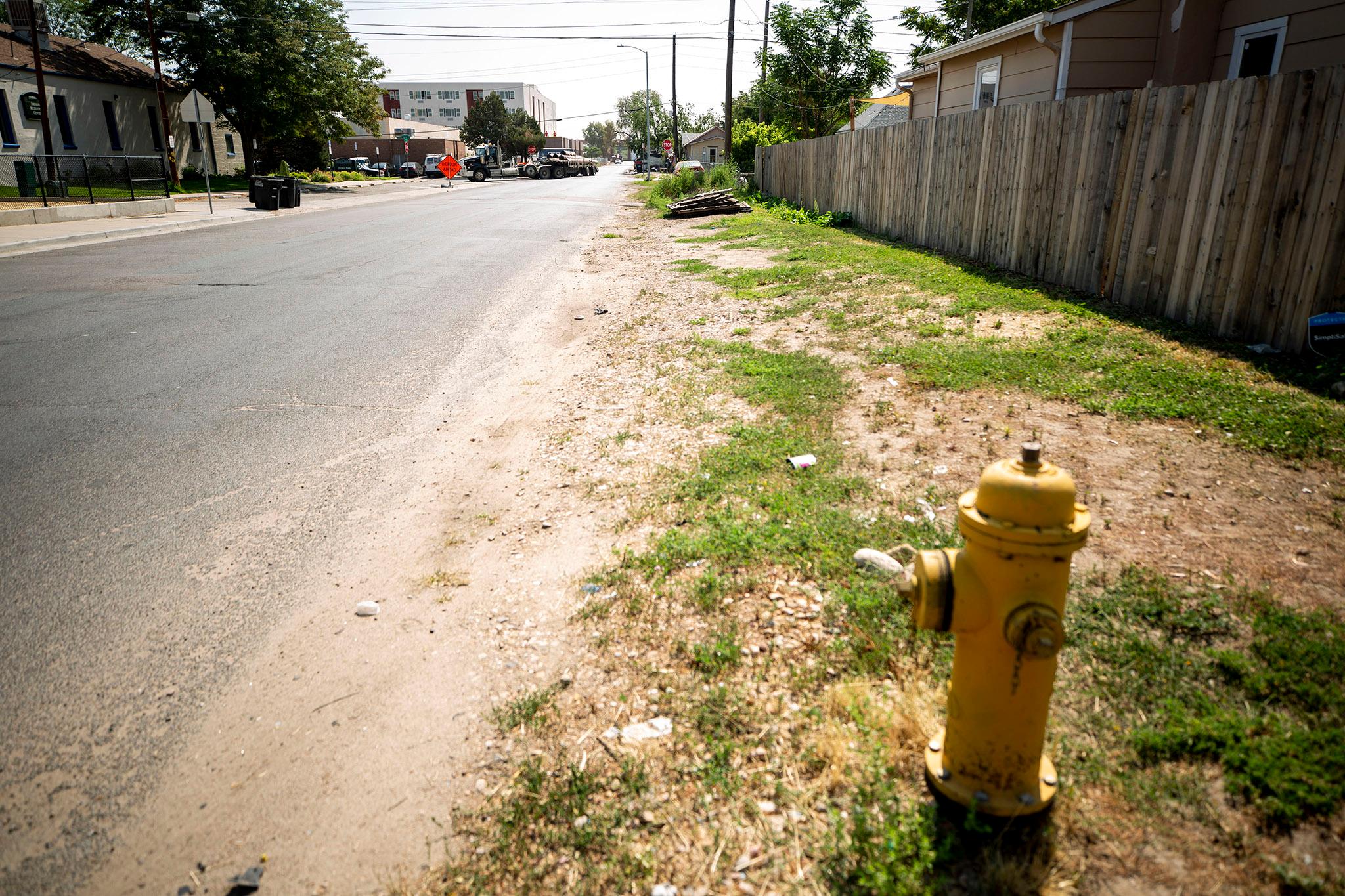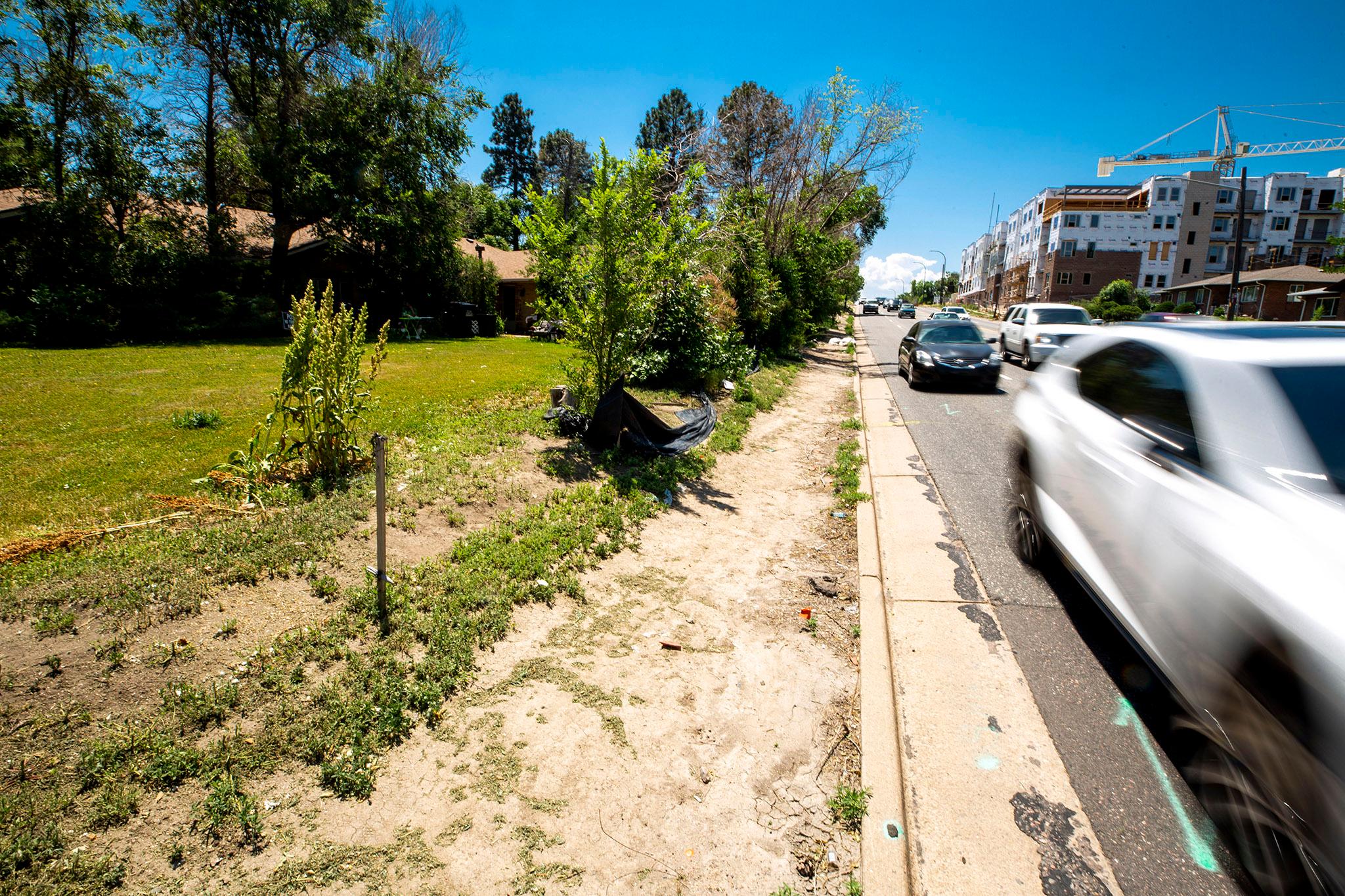Update Nov. 14 at 2:30 p.m. with latest election results
The advocacy group behind the "Denver Deserves Sidewalks" ballot initiative declared victory Sunday night after unofficial results showed the measure continuing to pull ahead.
The measure was leading Monday by a 55% to 45% margin -- or more than 25,000 votes -- with only about 44,000 ballots left to count. It's on a "clear path to victory," the Denver Streets Partnership said in a press release. Election results won't be certified until Nov. 29.
"I'm feeling really excited about the future of Denver," Jill Locantore, executive director of the Denver Streets Partnership said in an interview Monday. "I just think it's so great that Denver voters not only prioritize sidewalks, but I think what they were prioritizing was safety and accessibility and equity for everybody in our city."
Updated vote counts have appeared to show the measure heading to approval since election night. If that holds, it will elevate the repair and maintenance of sidewalks to a level of importance on par with streets, said J. Skyler McKinley, a spokesman for AAA Colorado, which endorsed the measure. He said the vote will create a once-in-a generation "grand scale public works project."
"This is a big deal," he said.
The initiative shifts responsibility for sidewalk maintenance and repair from property owners to the city. It also levies a new fee on property owners that will raise about $40 million every year, proponents say.
They believe that will allow the government to make needed repairs and fill in missing sidewalks across the entire city over the next nine years. About 40% of the city's streets have missing or substandard sidewalks, the city reported in 2019.
The initiative may see some tweaks from city leaders.
Locantore said she will soon reach out to the city's Department of Transportation and Infrastructure, which will be responsible for implementing the plan, and some City Council members.
"A few City Council members have said they'd like to make some tweaks to the program, and we are perfectly happy to work with them on that," Locantore said. "We just want to make sure that we adhere to the spirit of the initiative that voters just passed."

The city's Department of Transportation and Infrastructure has not yet responded to a request for comment. The city's analysis of the measure was exceedingly critical, forecasting repairs and construction would cost billions more and take almost 30 years -- three times longer than Locantore expects.
Locantore disputed that analysis, arguing that the city did not explain why cost estimates had risen from a previous 2019 estimate and because land acquisition would not be necessary on a large scale.
She also doesn't anticipate the City Council will overhaul the initiative. City leaders have re-written at least one voter-approved citizen-led initiative in recent years that drastically changed it: the 2017 "green roof" initiative that would have required rooftop vegetation on large new buildings. It now now gives affected parties more options to comply with the spirit of the law.
"It did require a fair amount of finessing to make it work within the Denver context," Locantore said of the green roof initiative. "But I feel like we've already done all of that groundwork here for crafting legislation that really truly is customized for Denver. And we're just talking about minor refinements at this point."
Councilman Kevin Flynn, who argued against the proposal throughout the campaign, also cited the green roof initiative in an email to Denverite on Monday. He said city officials worked with the proponents of that measure to make changes after it passed, and he hopes to do the same with the sidewalk initiative.
"The program as written will fail if the problems aren't addressed," he said. "There's not nearly enough funding or time in it, and the cost burdens are so inequitably spread. ... I'm confident we can find a way to make the sidewalks program work."

Through the campaign, Flynn criticized the sidewalk fee for being too burdensome on some. As written, the annual fee for every property owner will be based on how much property faces a street. Flynn said that will fall especially hard on the owners of large corner lots. He identified a handful of addresses where homeowners may see annual bills of $600 to more than $1,100.
You can read more about what the sidewalk measure might mean for you here.
In past interviews, Locantore has said the owner of a typical 50-foot-wide lot would only pay about $110 per year. They tied the measure's fee to a property's size to take construction and maintenance costs into consideration, she said.
"It just costs more money to maintain bigger properties," she said in May.
How the sidewalk program actually rolls out is a "10-year question," said McKinley with AAA Colorado.
"Anytime you give government a bunch of money -- and we've seen this, for example, with the cost of regulating marijuana -- it gets a little fuzzy until we figure it out," McKinley said.
But the city should make every attempt to make the measure successful, McKinley said, noting the measure's margin of victory that continues to widen as more ballots are counted.
"This doesn't appear as though it's going to be a close election," he said. "It looks like Denver voters -- a steady majority of them -- said, 'This is the right thing to do.' "
Sidewalks will likely now be an important issue in next year's wide-open race to replace outgoing Mayor Michael Hancock, McKinley said. Candidates will be able to campaign on how they would implement the new program.
"We're going to be talking about a lot of broad transportation reforms," he said. "And now, sidewalks will be a cornerstone of that necessarily -- because that's what the voters dictated."
Voters have also shown that Denver's culture is changing, Locantore said.
"For a long time, people said, 'this is a car city,' " Locantore said. "It was designed around the car and it always will be a car city. And I don't think that's true anymore. I think there are more and more people who live in Denver who don't want to be dependent on a car."













